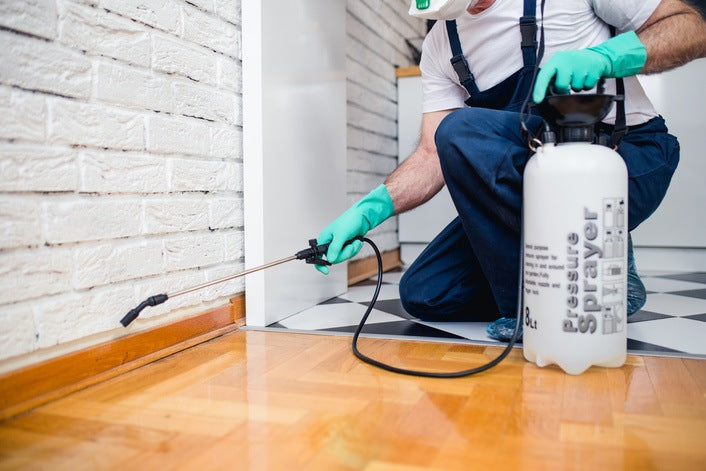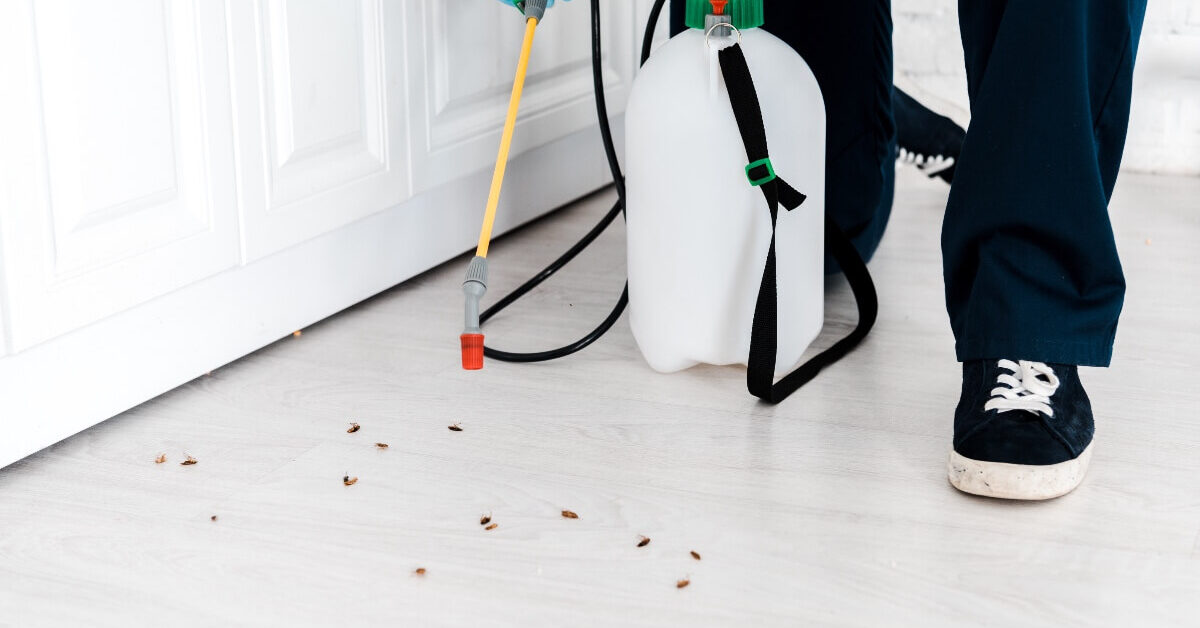Uncover the Relevance of Insect Control in Maintaining a Healthy And Balanced Atmosphere and Treatment Strategies

The Duty of Insects in Ecosystems
Insects, usually seen only as problems, play a multifaceted duty in ecological communities that is important for keeping ecological balance. They add dramatically to various environmental procedures, consisting of pollination, nutrient cycling, and bug control. Many insect varieties, such as butterflies and , are crucial pollinators for a wide variety of plants, which in turn sustains biodiversity and food manufacturing.
In addition, parasites offer as prey for many killers, developing a critical link in food webs. This interdependence makes sure the survival of numerous varieties and aids manage populaces within ecological communities (Termite treatment Port Charlotte). Additionally, decomposer parasites, such as specific beetles and fungi, contribute in damaging down raw material, hence improving dirt and helping with nutrition recycling.
On the other hand, while bugs can be valuable, their overpopulation or intrusion into non-native environments may disrupt these eco-friendly features. This intricacy highlights the significance of understanding pest characteristics, as effective pest monitoring approaches have to take into consideration both their eco-friendly functions and prospective influence on human tasks. Stabilizing pest existence while reducing harm is important for preserving the honesty of ecological communities and making certain agricultural productivity.
Health Threats Linked With Insects
The presence of parasites in various environments extends beyond their eco-friendly duties, as they also posture considerable health dangers to people and pets. Lots of pests, consisting of parasites, rats, and pests, are providers of conditions that can have severe health effects. Rodents are recognized to transmit hantavirus and leptospirosis, both of which can lead to serious respiratory system and renal issues, respectively.
Pests such as ticks and mosquitoes are notorious for spreading out vector-borne conditions like malaria, dengue fever, and Lyme illness. These ailments can result in high morbidity and mortality rates, especially in at risk populaces. Additionally, insects like insects and roaches can aggravate allergic reactions and asthma, adding to breathing issues in people, specifically those with pre-existing conditions.
Moreover, the visibility of parasites can lead to psychological anxiety and discomfort, affecting general wellness. Contamination of food and surfaces by parasite droppings and continues to be can result in foodborne ailments, highlighting the importance of maintaining sanitary conditions. For that reason, comprehending the health and wellness dangers connected with insects is important in identifying the need of reliable bug administration techniques to protect human and animal health.

Benefits of Efficient Parasite Control
Reliable pest control is important for maintaining a safe and healthy environment, as it consistently reduces the many dangers related to insect invasions. One of the primary benefits of reliable parasite management is the reduction of carcinogen. Pests such as rodents, roaches, and insects are vectors for diseases that can impact both pets and humans. By managing these populations, the possibility of condition transmission is dramatically lowered.
In addition, efficient parasite control safeguards property and structures from damages. Lots of parasites, like termites and woodworker ants, can cause extensive structural damage that might require expensive repairs. By proactively taking care of these house owners, infestations and businesses can protect their investments.
One more substantial advantage is the improvement of general top quality of life. A pest-free setting adds to psychological well-being and minimizes stress and anxiety related to invasions. Efficient bug control cultivates a more secure setting for pet dogs and youngsters, making sure that homes stay shelters complimentary from disease-causing microorganisms and dangerous chemicals.
Typical Bug Control Methods

In the world of bug management, various strategies are utilized to combat problems efficiently. These strategies can be extensively classified into 3 primary techniques: cultural, mechanical, and chemical controls.
Social control involves customizing practices to minimize parasite reproduction, facility, and survival. This may consist of plant rotation, appropriate cleanliness, and environment manipulation, which collectively develop an environment less for pest proliferation.
Mechanical control uses physical approaches to eliminate pests (Termite treatment Port Charlotte). Techniques such as traps, barriers, and vacuums are generally made use of to directly eliminate insects from an area. This method is especially effective for managing rodents and insects without using hazardous chemicals
Chemical control involves the application of pesticides to manage insects. These substances can be categorized right into herbicides, fungicides, and insecticides, each targeting details sorts of parasites. It is crucial to make use of these chemicals deliberately, sticking to security guidelines and regulations to decrease possible damage to non-target types and the atmosphere.
Each my explanation bug control technique has its advantages and constraints, and often, an incorporated technique integrating several techniques yields the most effective outcomes in maintaining a pest-free setting.
Sustainable Pest Monitoring Practices
Sustainable pest management practices include a variety of strategies created to reduce ecological effect while effectively managing pest populations. These methods focus on the usage of eco pleasant approaches over chemical pesticides, thereby lowering the risk of damage to non-target varieties, including advantageous pests, wildlife, and people.
Integrated Pest Administration (IPM) is a cornerstone of sustainable techniques, combining biological, social, mechanical, and chemical strategies to take care of parasites. As an example, biological control includes presenting natural predators or bloodsuckers to subdue insect populaces. Cultural methods, such as plant turning and polyculture, disrupt pest life cycles and boost ecosystem durability.
Mechanical approaches, such as catches or obstacles, can effectively stop bug accessibility without chemical intervention. Additionally, maintaining healthy environments via correct dirt management, plant health and wellness, and biodiversity can normally alleviate bug concerns.
Education and learning and recognition are essential parts, encouraging people and areas to recognize pest threats early and execute preventive steps. Termite treatment Port Charlotte. By fostering a holistic approach that balances parasite control with eco-friendly honesty, lasting parasite administration methods not only safeguard frameworks and plants however likewise add to a healthier environment for future how to control pests in your home generations
Conclusion

Understanding the wellness dangers linked with bugs is essential in identifying the need of efficient pest monitoring techniques to guard animal and human health.
Reliable insect control is crucial for preserving a healthy and risk-free environment, as it regularly mitigates the many dangers associated with pest invasions.Integrated Parasite Monitoring browse this site (IPM) is a foundation of lasting practices, incorporating biological, cultural, mechanical, and chemical strategies to take care of insects. By recognizing the role of insects, identifying involved health and wellness threats, and employing diverse therapy techniques, a sustainable technique to pest monitoring can be achieved. Integrated Insect Monitoring (IPM) stresses a holistic approach that alleviates injury to advantageous microorganisms while efficiently managing bug populaces.